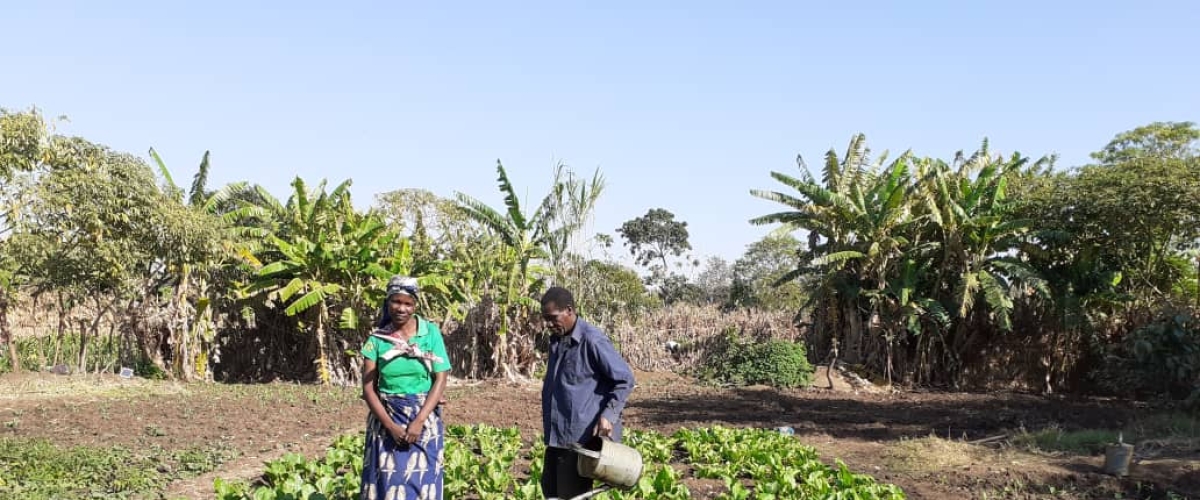
By Madalitso Kateta
In Lilongwe district, central Malawi, subsistence farmer Lucky Chimbereko is satisfied with the crop harvest he has been getting the past five years. As climate change continues to affect agricultural productivity, Chimbereko has for the past five years been using climate-smart agricultural practices at his gardens. The fifty-six-year-old farmer who mostly grows maize, although he has some small patches of groundnuts and tobacco recalls the challenges he used to face before he started using Climate Smart Agriculture practices.
But for the past five years, the story has been different. Since he started practising climate-smart agricultural practices he has been harvesting enough crop even during times when he does not have enough agricultural inputs such as fertilizers.
“I have been practising climate-smart agriculture practices for the past five years and since I started using these practices my crop yield has greatly improved before I started using these practices I used to harvest around 1000 kilograms of maize and I currently harvest over 1500 kilograms of maize on the same land,” he said.
Chimbereko uses Conservation Agriculture a climate-smart agricultural practice where farmers shade their soil with dried maize stalks on their land after harvesting. This practice allows the land to retain its fertility just as it gives the farmer time to plant for his farming activities as, under this practice, the garden does not grow many weeds. “Conservation Agriculture is a very good climate-smart agricultural practice as it helps the soil to maintain its fertility,” says Chimbereko.
Apart from using conservation agriculture, Chimbereko is also using pit planting where a farmer digs some pits for plant growth. According to Chimbereko, this practice is good in that it retains soil moisture as they hold water which is useful in periods of dry spells. Chimbereko told The Atlas these climate-smart agricultural practices are cheap and cost-effective for subsistence farmers who usually have labour and farm input challenges.
Meanwhile, Chimbereko is using the climate-smart agricultural skills at his vegetable garden which he says has also assisted him to buy some farm inputs after sales of his produce.
Agricultural Extension worker for the area, Edward Mjojo told The Atlas many farmers in the area have adopted and prefer conservation agriculture and pit farming because they are cheap and do not require a lot of expertise. “Most of the farmers prefer conservation agriculture and pit farming because they are cheap and do not require a lot of expertise,” he said.
The APPSA project has also made available to the farmers the vitamin-rich yellow maize which according to Mjojo farmers are liking because of its adaption to harsh climate conditions.






